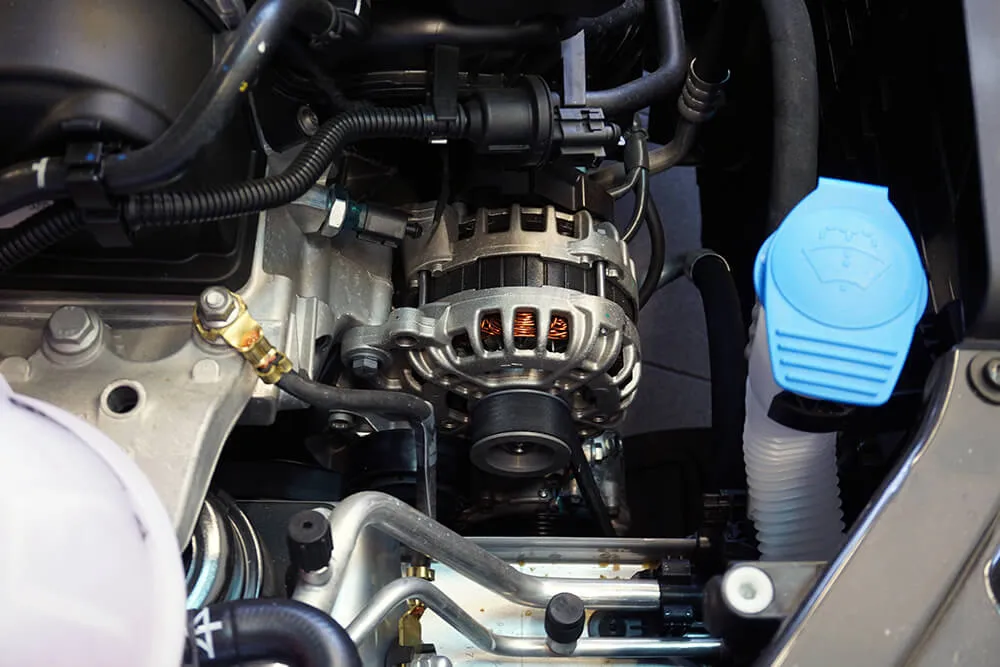Your car’s engine is a complex system composed of numerous components working together seamlessly to keep you moving smoothly on the road. One crucial component in this system is the alternator. The alternator is responsible for generating electrical power, and it keeps your vehicle’s battery charged and various electrical systems running smoothly. However, like any other part of your car, alternators can encounter issues over time, necessitating repair or replacement. We’ll explore everything you need to know about alternator repair and replacement to keep your vehicle performing optimally.
Understanding the Alternator
Before delving into repair and replacement, it’s essential to understand the role of the alternator in your vehicle. The alternator converts mechanical energy from the engine into electrical energy. It charges the battery while the engine runs and powers the vehicle’s electrical systems. Without a properly functioning alternator, your car’s battery would quickly drain, leading to various electrical failures and ultimately causing the engine to stall.
Signs of Alternator Issues
Identifying potential alternator problems early can save you from more extensive repairs. Here are some common signs indicating that your alternator may need attention:
Dimming Headlights: If your headlights appear dimmer than usual, especially when idling or at low speeds, it could be a sign of alternator trouble.
Warning Lights: Check your dashboard warning lights, particularly the battery light. If it illuminates while driving, it indicates a potential issue with the charging system, including the alternator.
Strange Noises: A malfunctioning alternator may produce unusual noises such as grinding, whining, or squealing. These noises often stem from worn-out bearings or a loose belt.
Electrical Failures: If you experience frequent electrical failures, such as power windows or door locks not functioning correctly, it could be due to an insufficiently charged battery caused by a faulty alternator.
Alternator Repair
In some cases, minor issues with the alternator can be resolved through repair rather than complete replacement. Here are some everyday repair tasks associated with alternator issues:
Belt Replacement: If the alternator belt is worn or damaged, it can affect performance. Replacing the belt and ensuring proper tension can resolve this issue.
Voltage Regulator Replacement: The voltage regulator controls the alternator’s output to maintain a consistent voltage level. If it malfunctions, it can cause the battery to overcharge or undercharge. Replacing the voltage regulator can rectify this issue.
Bearings Replacement: Worn-out bearings can cause noise and vibration in the alternator. Replacing the bearings can restore smooth operation and eliminate these symptoms.
Alternator Replacement
In cases where the alternator is severely damaged or cannot be repaired, replacement is necessary. Here’s what the replacement process typically entails:
Diagnostic Testing: Before replacing the alternator, a certified technician will conduct diagnostic tests to confirm that the alternator is the problem’s source. This may involve testing the battery, charging system, and electrical connections.
Part Selection: Once the issue is identified as a faulty alternator, the technician will select a replacement unit that meets the specifications of your vehicle’s make and model.
Installation: The old alternator is removed from the engine compartment, and the new one is installed. The technician will ensure that all connections are secure and that the alternator is aligned correctly and tensioned.
Testing: After installation, the technician will perform additional tests to verify that the new alternator is functioning correctly and charging the battery at the appropriate voltage level.
The alternator is a critical component of your vehicle’s electrical system, and promptly addressing any issues is essential to prevent further damage and ensure reliable performance. Whether it’s minor repairs or complete replacement, entrusting the job to certified professionals like those at Certified Auto Repair ensures that your car receives the attention it deserves. By staying vigilant for signs of alternator trouble and addressing them promptly, you can keep your engine running smoothly and enjoy worry-free driving for miles.

